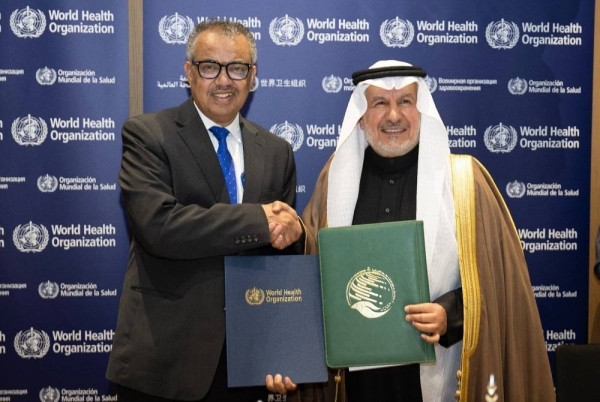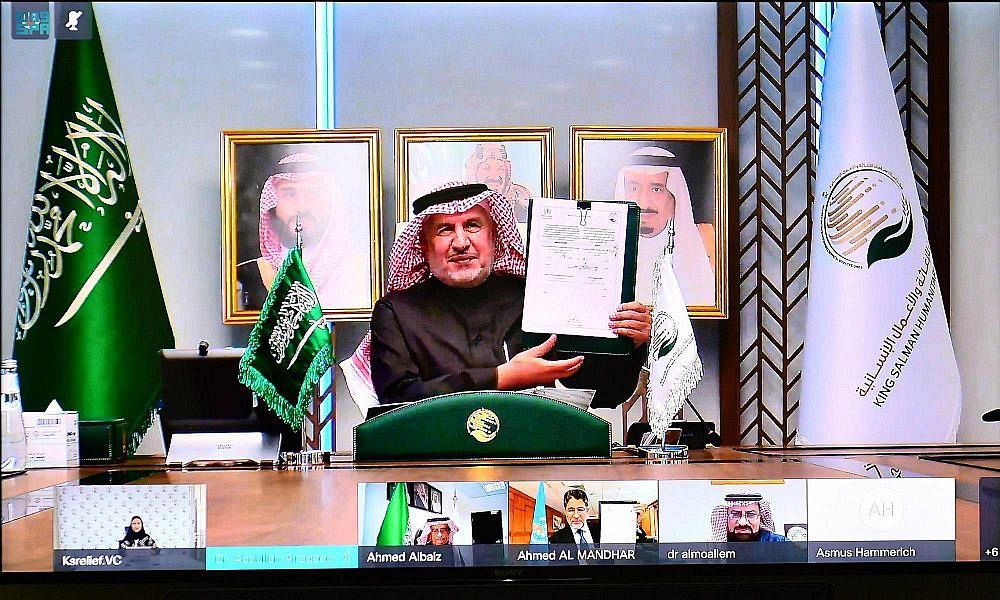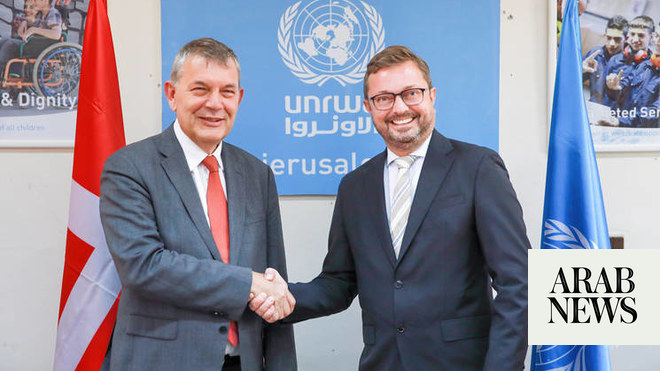
The King Salman Humanitarian Aid and Relief Center (KSrelief) signed five agreements with the World Health Organization (WHO) in Geneva on Saturday. This is to provide $19.5 million in funding to WHO programs in three countries: Yemen ($9.5 million), Sudan ($5 million), and Syria ($4.75 million).
The pacts were inked on the sidelines of the 77th session of the General Assembly of the WHO in Geneva. The agreements were signed by the Advisor to the Royal Court and General Supervisor of KSrelief Dr. Abdullah Al-Rabeeah and WHO Director General Dr. Tedros Adhanom Ghebreyesus, in the presence of the Saudi Permanent Representative to the United Nations in Geneva Ambassador Abdul Mohsen bin Khathila.
Speaking on the occasion, WHO Director General Dr. Ghebreyesus expressed great appreciation for Saudi Arabia’s generous support over the past five years. These contributions, he noted, have been instrumental in tackling malnutrition, cholera, and malaria, while also aiding in the rehabilitation of healthcare systems in crisis zones, and have had a positive impact on vulnerable populations.
WHO applauded Saudi Arabia, with which it has a strong partnership, and highlighted the Kingdom’s crucial role in alleviating health challenges across the globe, including its vital support to Sudan, Gaza Strip in Palestine, Yemen, Somalia, Ukraine, and Rohingya refugees in Bangladesh.
The organization also welcomed the continued support KSrelief lends it to address global health emergencies, and acknowledged Saudi Arabia’s position as one of WHO’s top contributors in recent years. WHO Regional Director for the Eastern Mediterranean Dr. Hanan Balkhi emphasized the significant role these funds will play in the region, supporting vulnerable communities facing multiple emergencies.
The first agreement stipulates filling the acute shortage of dialysis supplies in Sudan with the aim of reducing the deaths of kidney failure patients in various Sudanese states by providing dialysis consumables sufficient for about 235,000 dialysis, in addition to providing 100 dialysis machines, and paying the salaries of medical staff in 77 dialysis centers that amounted to cost $5 million.
In the second agreement, medical aid will be provided to those affected by the earthquake in Syria at a total cost of $4.74 million. This will support health facilities in northwestern Syria by equipping 17 central hospitals in the areas affected by the earthquake with the necessary medical equipment in the operations and care departments. Ten ambulances and a large set of medicines will be provided to beneficiaries in the affected areas.
The third agreement provides for confronting the outbreak of measles among children under the age of five in Yemen, at a total cost of $3 million, with the aim of reducing the spread of measles by launching a campaign to vaccinate 1,205,336 Yemeni children by equipping 1,125 health centers with medicines, intravenous solutions and consumables necessary to treat the cases in several governorates.
The fourth agreement stipulates improving water and sanitation services in health care facilities with sustainable water supply to serve the most-needy population in Yemen, at a value of $3.75 million under which wells powered by solar energy will be drilled in 10 health care facilities.
The fifth agreement stipulates limiting the spread of cholera throughout Yemen, with a value of $3 million, through a set of preventive and curative activities, securing vaccines, medicines and medical consumables for central laboratories, and providing personal protective equipment for medical personnel.











